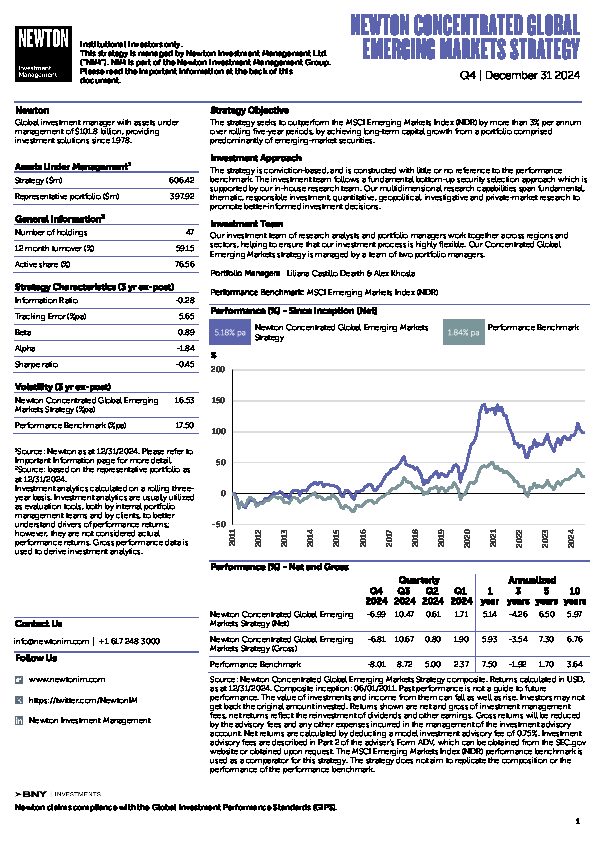Strategy Profile
-
Objective
-
The strategy seeks to outperform the MSCI Emerging Markets Index (NDR) by more than 3% per annum over rolling 5-year periods, by achieving long-term capital growth from a portfolio comprised predominantly of emerging-market securities.
-
Performance benchmark
- MSCI Emerging Markets Index (NDR)
-
Typical number of equity holdings
- 40 to 70
-
Strategy inception
-
May 2011
-
- The Newton Concentrated Global Emerging Markets strategy changed its name from Newton Global Emerging Markets strategy on January 1, 2023.
Investment Team
The strategy is managed by an experienced team with a wide range of backgrounds. In-house research analysts are at the core of our investment process, and our multidimensional research capabilities help to promote better-informed investment decisions.
Your capital may be at risk. The value of investments and the income from them can fall as well as rise and investors may not get back the original amount invested.
Analysis of themes may vary depending on the type of security, investment rationale and investment strategy. Newton will make investment decisions that are not based on themes and may conclude that other attributes of an investment outweigh the thematic structure the security has been assigned to.
ESG can be one of many inputs into the fundamental analysis. Newton will make investment decisions that are not based solely on ESG analysis. Other attributes of an investment may outweigh ESG analysis when making investment decisions. The way that material ESG analysis is assessed may vary depending on the asset class and strategy involved. As of September 2022, the equity investment team performs ESG analysis on equity securities prior to their recommendation. ESG analysis is not performed for all fixed-income securities. The portfolio managers may purchase equity securities that are not formally recommended and for which ESG analysis has not been performed.









